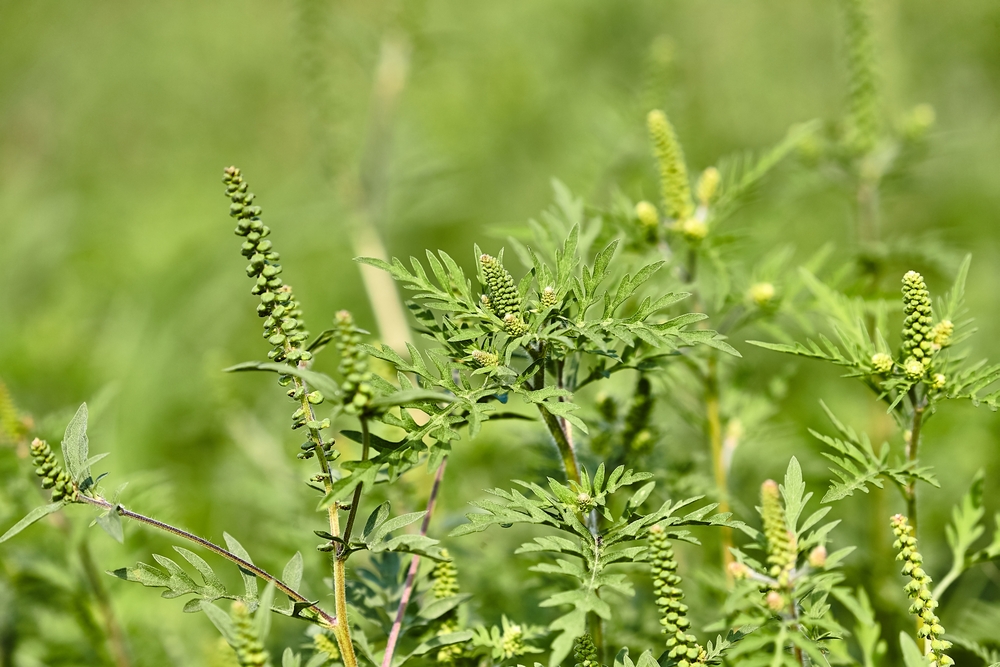Not to be sneezed at: remove allergenic ragweed, say experts

Medical centres and plant experts are calling on people to remove ragweed from their gardens before it can spread its highly allergenic pollen when it flowers in the course of the coming weeks.
Ragweed (Ambrosia artemisiifolia) is an invasive species that arrived in the Netherlands some 13 years ago in bird seed, experts said. Its pollen can severely affect hay fever sufferers.
The import of bird seed containing ragweed seeds has been stopped but the seeds can germinate for 40 years and appear at any time.
“The pollen affects quite a large group. Around a million people in the Netherlands are allergic to this type of pollen”, biologist Maurice Martens of Pollennieuws/Dutch Flora told broadcaster NOS.
His organisation, along with the food safety board NVWA, Wageningen University, Leiden University’s medical centre and expertise centre FLORON are calling on private garden owners to take action to remove the plant.
Local authorities are already removing ragweed from public parks but it is up to people themselves to keep an eye out, Martens said.
“It is not that common yet in the Netherlands but it’s been spotted across the country. And wherever it has appeared it is causing problems,” Martens said. “It flowers well into October and that means the hay fever season effectively lasts two more months.”
Ragweed can look like other plants, Martens said, and people who have trouble recognising the plant can consult the Flora van Nederland website
The NVWA advises people to wear gloves to remove the plant because the it can also cause skin allergies, and, once the plant is flowering, to wear a mask and safety goggles as well. The removed plants should not be put with the garden waste but in the bin. “That plant needs a firm hand or it will be all over the place,” Martens said.
Thank you for donating to DutchNews.nl.
We could not provide the Dutch News service, and keep it free of charge, without the generous support of our readers. Your donations allow us to report on issues you tell us matter, and provide you with a summary of the most important Dutch news each day.
Make a donation